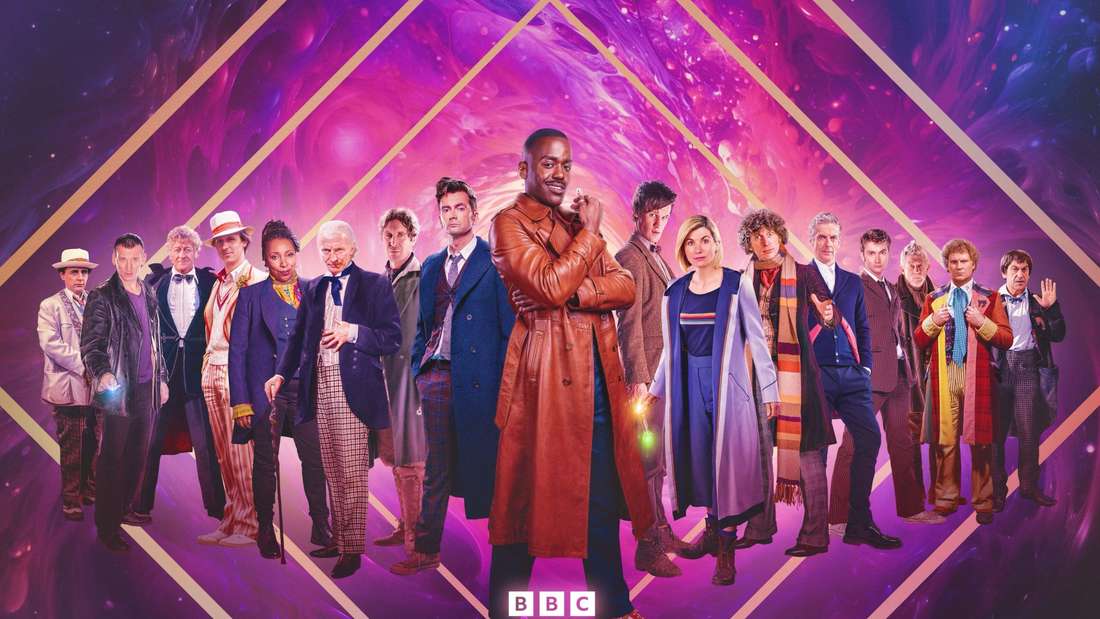
- DozentIn: Anne Hess
Archaeologists have long researched the field of garbology, the study of garbage. A central tenet of garbology is that “what people have owned — and thrown away — can speak more eloquently, informatively, and truthfully about the lives they lead than they themselves ever may” (William Rathje). This is also applicable to the way texts engage with waste and waste spaces.
In this seminar, we will closely read contemporary science fiction texts with a focus on waste, trash and garbage. Locating it in an ecocritical theoretical framework, we will discuss the meanings and contextualisations of waste in these texts while also considering resource management and the spatiality of waste, among other topics.
After a short historical introduction, which will include excerpts (e.g., from Charles Dickens’s Our Mutual Friend), our texts will consist of a selection of current Doctor Who episodes (11th and 13th Doctor), as well as excerpts from different sci-fi novels, such as China Miéville’s Perdido Street Station and Kazuo Ishiguro’s Klara and the Sun. We will read one novel in full, Terry Pratchett’s The Truth.
Text:
Students need to own a copy of The Truth. All other material will be provided on moodle.
Terry Pratchett. The Truth. Corgi, 2001. ISBN 978-0-552-14768-2
(Please make sure not to buy the stage adaptation, but the novel!)
- DozentIn: Anne Hess
|
Erste Sitzung: 8. November 2022 (wegen einer Exkursion in der ersten Vorlesungswoche und Allerheiligen am 1. November 2022) Die Anmeldung findet im Rahmen des allgemeinen Verfahrens der Fachrichtung statt. Bitte beachten Sie die Mitteilungen auf der Website der Fachrichtung und die Aushänge. This course will introduce students to different theoretical and practical perspectives on the role and power of media in society. We will first discuss various definitions of media as well as aspects of media history, media theory, and media analysis. We will then analyse film sequences of iconic and lesser known British films. Students will be introduced to basics of film and TV studies such as film narrative, cinematic techniques, approaches to contextual interpretation, and genre analysis. We will also include other forms of media, such as media events, artworks, and digital products, into our critical discussions. Ultimately, this course aims to sharpen students’ awareness of the social and cultural functions of media, how media influence political beliefs, identities, and behaviours while at the same time they are being shaped by these. Our primary texts this term will include the Olympic Opening Ceremony 2012 in London, a James Bond film as well as at least one Doctor Who episode. Reading texts and/or watching films in preparation for each class will be mandatory. In order to gain credits for this course, students will have to participate in a case study to be presented in class. Our last session will be a double session. Texts: Relevant materials will be made available via moodle. |
- DozentIn: Anne Hess
Since the eighteenth century, the Gothic has undergone many changes as a genre. What has not changed, though, is that spaces, in particular architectural spaces, are defining elements of the Gothic. Since the publication of Horace Walpole’s The Castle of Otranto (1764), the Gothic’s uncanny castles, ruined abbeys, haunted mansions and decaying country houses have set the Gothic’s scenes. These buildings also offer multiple starting points for research, for instance socio-economic, political, ethnic and gender topics.
We will first discuss Gothic as a historical genre before we turn to theories of spaces and spatiality. We will then enter on a historical tour of Gothic literature on which we will read excerpts from selected Gothic texts with a view to their (re-)presentations of places and spaces. Our primary texts will be Mervyn Peake’s Titus Groan (1945) and Sarah Waters’ The Little Stranger (2009). We will contextualise both novels and closely read excerpts from them, focusing on how they construct their twentieth-century versions of the Gothic castle.
Texts (Please buy and read the following editions):
Peake, Mervyn. Titus Groan. Vintage Classics, 1998. ISBN: 9780749394929
Waters, Sarah. The Little Stranger. Virago, 2010. ISBN: 9781844086061
- DozentIn: Anne Hess

